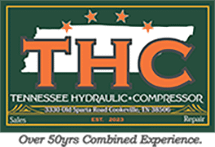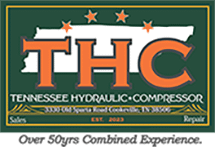
Maintaining hydraulic compressors in Cookeville, TN is essential for keeping any industrial operation running. Hydraulic compressors are the primary power source at Tennessee Hydrualic Compressor, and have been a vital part of many industries for decades. With regular maintenance and proper care, hydraulic compressors can serve for many years without significant repairs or breakdowns.
In this article, we’ll provide tips on how to properly maintain hydraulic compressors in Cookeville, TN. We’ll also discuss common problems and how to avoid them, as well as safety protocols and important service information from Tennessee Hydrualic Compressor.
1) Regular Maintenance & Inspection: To ensure your hydraulic compressor is running smoothly, you need to perform regular inspections and maintenance. At Tennessee Hydrualic Compressor, we recommend that all compressors are inspected every 3 months or 250 hours of operation, whichever comes first. During the inspection, it’s important to check all components for signs of wear, damage, or other issues. If any issues are found, they should be addressed immediately to prevent further problems or costly repairs.
2) Cleaning the System: Hydraulic compressors often accumulate dirt and debris over time, which can decrease efficiency and cause damage if left unchecked. To ensure this doesn’t happen, it’s important to regularly clean the system with an appropriate solvent and filter. This will help remove any buildup that could cause problems later down the line.
3) Lubrication: Lubrication is essential for most mechanical systems, and hydraulic compressors are no exception. It’s important to use the appropriate type and grade of oil or grease to properly lubricate the system as needed. This will help reduce friction between moving parts and extend the life of the compressor.
4) Checking Valves & Lines: It’s also important to regularly check the valves and lines of your hydraulic compressor for leaks or blockages. Any leaks or blockages should be addressed immediately as they can lead to serious problems such as fires or explosions if not taken care of quickly.
5) Filters & Hoses: The filters and hoses of a hydraulic compressor must be checked for breaks or cracks on a regular basis. If any damages are found, they should be replaced right away to prevent contamination and possible downtime. Additionally, clogged filters should be changed periodically to avoid loss of pressure or decreased performance.
6) Safety Protocols: It’s important to take safety into consideration when working with hydraulic compressors in Cookeville, TN. Always remember to wear protective gear such as safety goggles and gloves while inspecting and servicing the system. Additionally, never leave a compressor running unattended in case something goes wrong during maintenance.
When it comes to maintaining hydraulic compressors in Cookeville, TN, experts at Tennessee Hydrualic Compressor encourage regular inspections and maintenance to keep systems running efficiently and safely. Sticking to these simple tips and following Tennessee Hydrualic Compressor’s safety protocols can help prolong the lifespan of your compressor and save money in costly repairs or replacements. Remember to regularly inspect and maintain your hydraulic compressor in Cookeville, TN for optimal performance and reliability. Hydraulic compressors cookeville tn are a vital part of businesses operations and deserve to be given proper attention and care for long-term results. r
